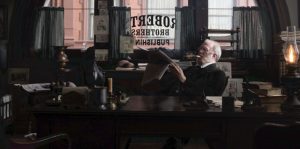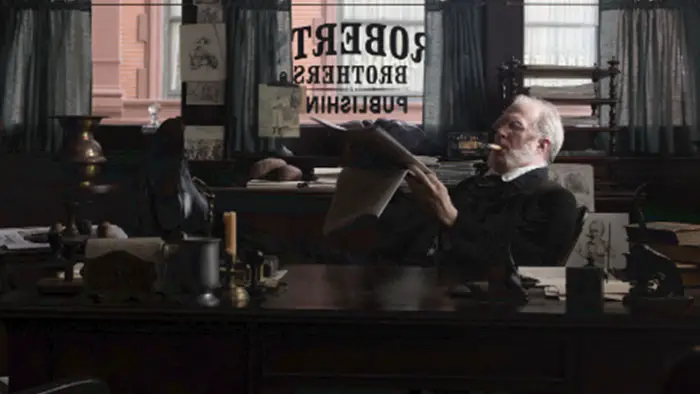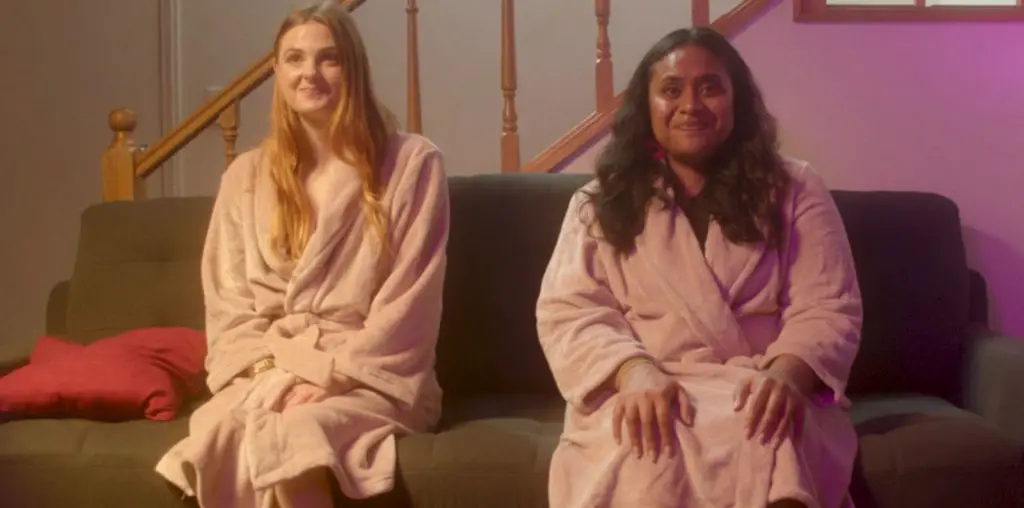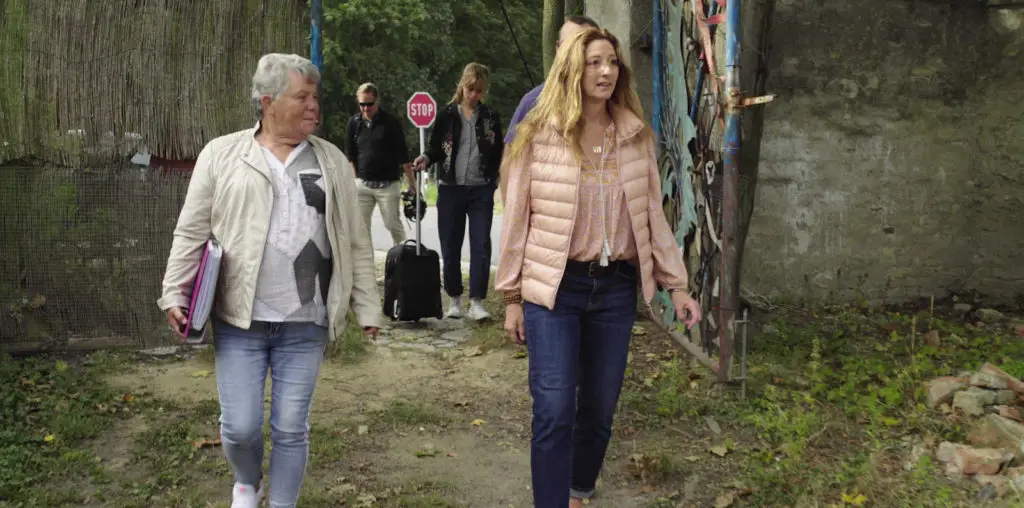
Let’s move on to Little Women. Your character more or less bookends the film. You represent the patriarchy in the film. You’re in the movie for two scenes. The character you portray, Mr. Dashwood, is such a well-developed character. What was it like creating that character? I think his physicality is a big part of that portrayal.
Greta handed me a script to get my comments, whether as a writer or just as a friend, I’m not sure. And I thought the script was so great and so contemporary. I had no comments for her other than this is freaking great. I don’t know how she did it. Then she asked me to play this part of Mr. Dashwood. With Greta, I’ll do anything she asks. I don’t care if she wants me to show up and move cable from room to room, I’ll do that because I think she’s a great filmmaker and I like being on Greta’s set. Everybody loves being on Greta’s set. It’s a great place to be. It’s a great warm environment where people are really allowed to do their best work. The character was all on the page, and it seemed a simple matter.
I appreciate what you say about his physicality because I’m a theater actor and so the physical life of the character is really important to me. Sometimes it doesn’t communicate on camera because the camera is so interested in the eyes and the face and production design, more so than the physical body. But still, that’s how I approach a character first and foremost. I try to get the character into my head: How does he move? How does he sit? How he walks? How he conducts himself? And so, uh, it was just a great pleasure to be a part of Little Women. It’s weird, I didn’t shoot very long on the film. Just a couple of days, but the way it’s structured, Dashwood becomes a small but impactful role.

Photo by Wilson Webb
“She’s such a phenomenal actor. Her work seems so effortless…It’s whatever that ineffable quality is that some actors have where you just want to watch them.”
Saoirse’s character, Jo, is very high status, and I think you’re one of the few characters who claim higher status above her. You worked with Saoirse before, what was it like working opposite her?
She’s such a phenomenal actor. Her work seems so effortless. She’s so watchable. You can’t help but stare at her. It’s whatever that ineffable quality is that some actors have where you want to watch them. You want to see their faces either in motion or in repose. I’m often asked to play what the Cohen brothers call the “man behind the desk.” I play that role in both Ford v Ferrari and Little Women. Both these guys are gatekeepers, right? That they stand in the way of the protagonist getting what they want. Different characters and different ways to achieve the same ends. Given the period in which Little Women is set and given the differences between Saoirse and me. It’s not as if I have to do a lot to be that gatekeeper for her. In terms of physicality, all I have to do is sit solidly there, and it’s like I’m the obstacle that she has to figure a way around.
These are two very character-driven movies. What would you say are some of the similarities and differences between the two directors: Greta Gerwig and, and James Mangold?
Oh, my God. They couldn’t be more different from the standpoint of personality. James is very loud. He screamed. He gets into screaming fights with his DP. You’re like, “Wow, those guys are really at each other’s throats.” And then you find out it’s like the seventh movie they’ve made together. Oh, that’s just the way he communicates. And he’s very good with actors. He’s very gifted in his ability to communicate with actors. You know, he tells a great story. He gives you the impression that he’s almost like a, like a gaffer who worked his way up the ladder. But the truth is he’s a film school nerd. He went to Cal Arts. His father is a famous painter. His teacher, his mentor, was Alexandra McKendrick, a great filmmaker who made James, at one point, switch over and join the drama department as an actor.
And James did. He spent time as an actor at Cal arts. And what he was learning was what an actor has to go through. And he’s very good at talking about the needs of the scene.



[…] men: Henry Ford II (blustering and blubbering his way through “Ford v Ferrari”), and the impressively mutton-chopped editor in Greta Gerwig’s “Little Women.” (He said he specifically asked the director for such showy […]